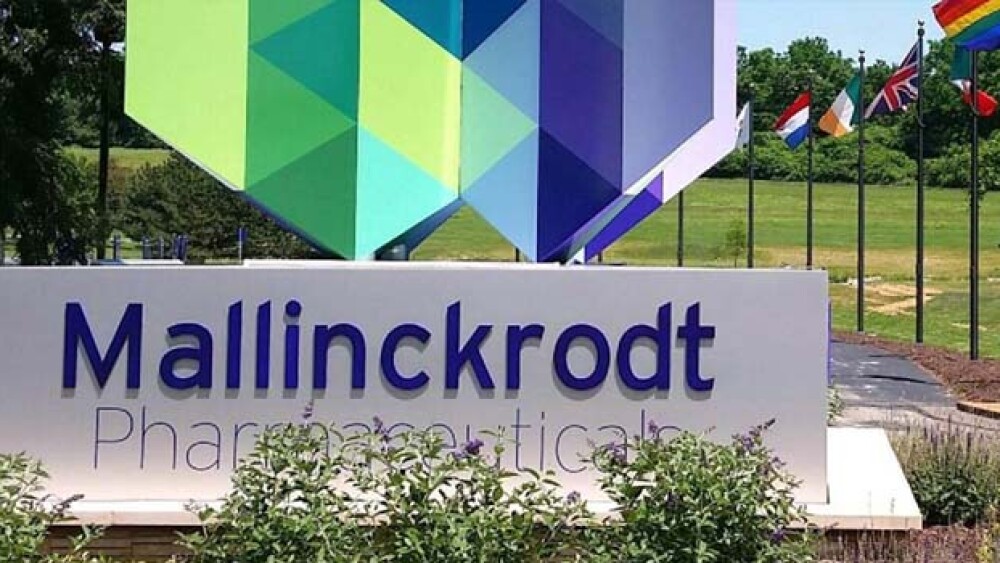Mallinckrodt said it remains committed to becoming an “innovation-driven specialty brands business.”
Eight months after it announced a plan to spin off its generics business into a standalone company, Mallinckrodt Pharmaceuticals has suspended that plan due to current market conditions and ongoing litigation over its sale of opioids.
This morning, U.K.-based Mallinckrodt announced the suspension of its plans in its quarterly report. While it suspended the spin off, Mallinckrodt said it remains committed to becoming an “innovation-driven specialty brands business.” Mallinckrodt announced its spin-off plans in December after failing to sell its significant generics business. The company has dangled its generics business to potential buyers on multiple occasions, which includes its opioid-based painkillers. The company has seen falling revenues due to increased generics competition and is also facing multiple lawsuits regarding the sale of its opioid painkillers. The company did not provide a potential timeline for when it may resume plans to spin off the generics business.
When the spin-off was announced, Mallinckrodt said it planned to create two independent publicly traded companies. One will be focused on “innovative specialty pharmaceutical brands,” while the other company will be concentrated primarily in “niche specialty generic products and API manufacturing.” The spin-off company would retain the Mallinckrodt name and continue to be listed on the New York Stock Exchange. The specialty brands company would be renamed Sonorant Therapeutics plc. Mallinckrodt had previously announced that Matthew Harbaugh, currently Mallinckrodt’s chief financial officer and president of the Specialty Generics business, would become the chief executive officer of the new company.
This morning, Mallinckrodt said its long-standing goal remains to be an innovation-driven biopharmaceutical company that is focused on improving outcomes for underserved patients with severe and critical conditions.
“However, based on current market conditions and developments, including increasing uncertainties created by the opioid litigation, the company is suspending, for now, its previously announced plans to spin off the specialty generics company. Mallinckrodt continues to actively consider a range of options intended to lead to the ultimate separation of the specialty generics business, consistent with its previously stated strategy,” the company said in its quarterly report.
Like many opioid manufacturers, Mallinckrodt is facing numerous lawsuits regarding the marketing and sale of its products as the nation continues to grapple with an ongoing opioid-addiction crisis. A recent report showed that Mallinckrodt was among the companies with the highest output of oxycodone and hydrocodone pills during a six-year period. In 2017, the company paid $35 million to the U.S. government to settle allegations that it failed to report suspiciously large amounts of drug orders for its opioid pills.
Although not related to opioids, in June, the company forked over another $15.4 million to the U.S. Department of Justice to settle a federal probe into how a company it acquired, Questcor’s sale of Acthar gel, a treatment for a rare infant seizure disorder and multiple sclerosis.
In its quarterly announcement, Mallinckrodt reported net sales of $823 million and gross profit of $388.9 million. For the first half of the year, net sales were $1.613 billion, up 2.1% to the same period last year, which saw net sales of $1.58 billion. Acthar Gel net sales were $266.4 million, a 9.1% decrease that was driven primarily by “continued reimbursement challenges impacting new and returning patients, and continued payer scrutiny on overall specialty pharmaceutical spending,” Mallinckrodt said.
Newsletter Sign Up
Sign up to get the latest life sciences news and updates delivered straight to your inbox.





